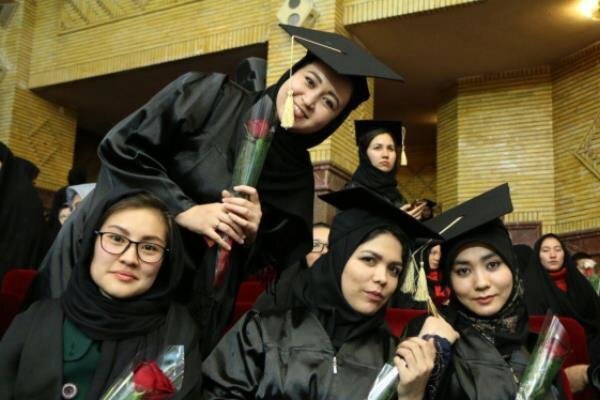Iranian university grants scholarships to Afghan girls
Iranian university grants scholarships to Afghan girls
Iranian university grants scholarships to Afghan girls

TEHRAN – Alzahra University in Tehran has approved granting scholarships to 50 graduates of an Afghan girls' high school, which was targeted by a terrorist bomb attack on May 9.
Following the explosion of Sayed Al-Shohada Girls' High School in Kabul, Alzahra University's board members approved a plan to support the education of talented and influential women and promote the status of women in Afghanistan.
Under the plan, 25 scholarships, called "Scholarship for Erudite Women," was allocated to girls graduating from Sayed Al-Shohada High School in all fields covered by Al-Zahra University and five other special scholarships, named "Maryam Mirzakhani Scholarship" after the late Iranian mathematician, were granted to applicants to study mathematics.
The Ministry of Science, Research and Technology had offered 25 scholarships to Alzahra University to support the humanitarian move, ISNA reported on Tuesday.
The explosion left 85 female students dead and some 150 others injured.
Living conditions of foreign nationals in Iran
The population of Afghan immigrants residing in Iran is about two to three million, some of whom sometimes have problems with identity cards or do not have identification codes.
Some 120,000 refugees residing in Iran are now covered by health insurance.
At the end of 2018, Iran hosted close to one million refugees, making it the sixth-largest refugee host country in the world. The country was also the eighth largest refugee-hosting country in the world in 2019, hosting 951,142 Afghan refugees and 28,268 Iraqi refugees, according to the UNHCR.
One of the largest and most protracted urban refugee populations in the world is living in Iran; about 97 percent of refugees live in urban and semi-urban areas, while three percent are residing in 20 refugee resorts run by the UNHCR's main government counterpart.
In light of the COVID-19 pandemic, undocumented Afghans have access to free primary health services and similarly free COVID-19 related testing, treatment, and hospitalization, just like nationals.
Despite the challenges, Iran has continued to generously give refugees access to education and health services. Iran is one of the handfuls of countries in the world that offer refugees the option to enroll in national health insurance for essential secondary and tertiary public health services in the same way as Iranian nationals.
The national insurance scheme allows for free COVID-19 treatment and hospitalization. It also subsidizes the cost of surgeries, dialysis, radiology, laboratory tests, outpatient care, and more.
Education for foreign nationals
Many of the refugees living in Iran are the second and third generation, according to the UNHCR.
There are 40,000 Afghan students in the country, according to the official report, 17,000 of them are graduated, while the unofficial report is estimated at 26,000.
Quoted from


